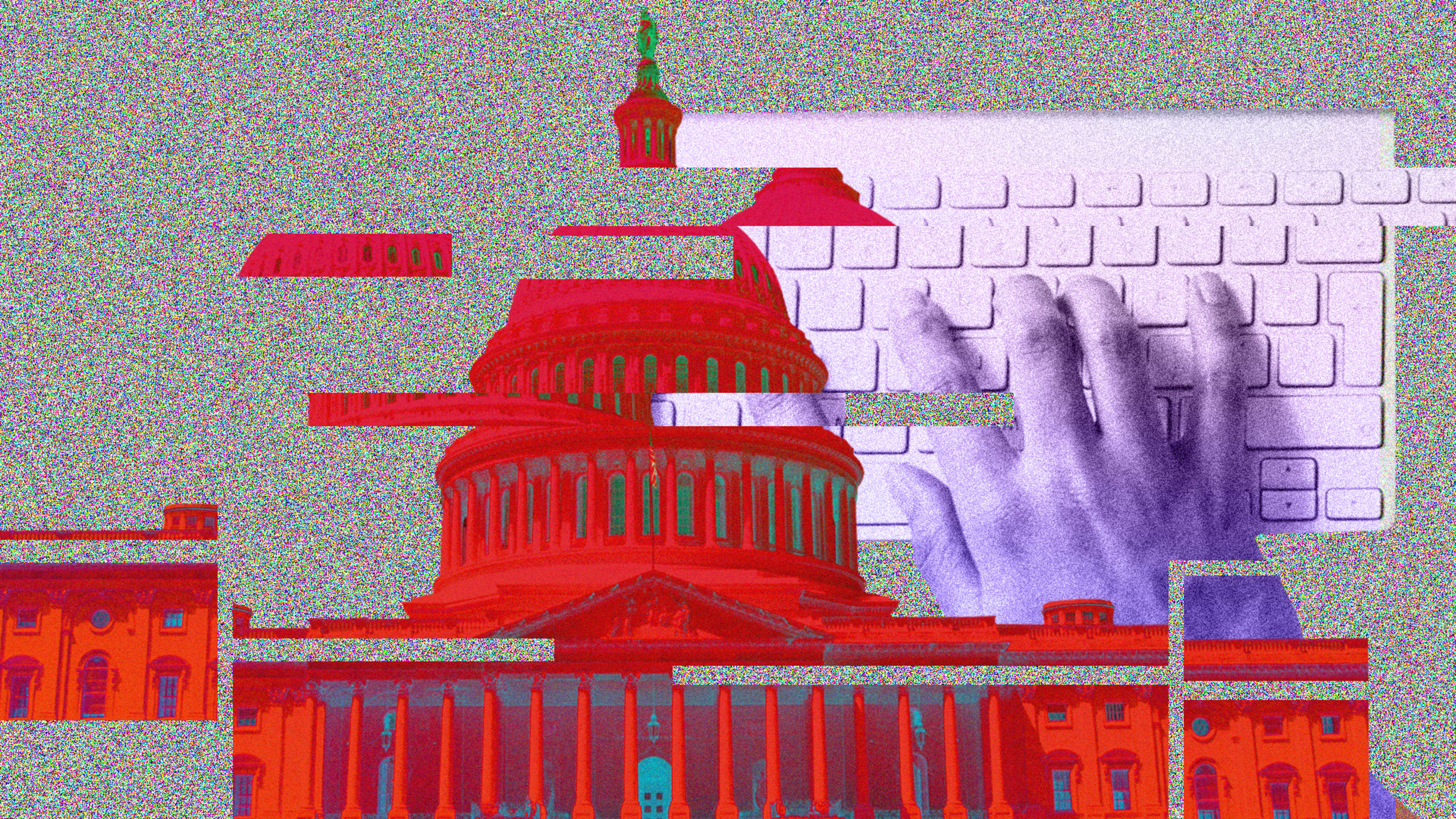It’s impossible to read Twitter, watch CNN, or glance at YouTube these days and not feel bombarded by the thousand ways our federal government is failing us. From its inability to address existential problems such as climate change, healthcare, education, and immigration, to the inability of both chambers of Congress to agree on even the basic rules of impeachment, Washington is a dumpster fire in every conceivable way. But of Washington’s many, many inadequacies, one that isn’t talked about nearly enough is its inability to resolve public policy issues around new technology.
When an Act of Congress becomes a miracle, cities and states start to take matters into their own hands, performing functions usually handled by the federal government. California, for example, has recently passed stricter auto emissions standards and sweeping privacy legislation, and it overhauled how it classifies workers in the sharing economy. Those are all national issues that should be handled by Washington, not determined from state to state. Consumers shouldn’t have to develop an encyclopedic knowledge of state and local regulations to know whether your drone can fly or your apartment can be listed on Airbnb. Tech companies shouldn’t have to repeat the regulatory process in city after city, state after state, diverting resources needed for research and development to be spent instead on lobbyists, lawyers, and public relations firms.
But Washington’s extreme dysfunction forces decision-making onto cities and states. To make matters worse, extremists on both the far left and the far right—who make up the majority of voters in low-turnout local primary elections—now hold most of the power. When that happens, balanced decision-making goes right out the window. So instead of weighing the pros and cons of each public policy, reaching a compromise, and then giving everyone certainty and resolution, tech regulation today is a battle zone.
Neighborhoods are at war with cities, cities with states, and states with Washington. New technologies such as facial recognition software are either demonized and immediately banned as a vital threat to civil liberties or warmly embraced as a new way to improve safety and convenience. Self-driving cars are either lauded as a way to increase productivity and save lives or they’re the barbarians at the gate, threatening a world of automation that puts people out of work. Same goes for cryptocurrency, esports, drones, the sharing economy, artificial intelligence, machine learning, and half a dozen other groundbreaking ideas. It all depends on the politics of where you live. Decisions are based far too much on narrative and perception, and far too little on facts and reason. The success or failure of new innovations shouldn’t be contingent on striking the right chord with pundits and political power brokers rather than considering the needs of ordinary people.
And what does all that indecision mean for companies and consumers? Total chaos. We now see tech platforms such as Uber and Airbnb suing cities and states left and right. Nearly every state attorney general is conducting their own antitrust investigation into Facebook. It leads to a handful of community activists driving away 25,000 new jobs Amazon offered to create in New York. It leads to an incomprehensible patchwork of regulations that change from state to state, city to city, sometimes even neighborhood to neighborhood. Try navigating an electric scooter across Los Angeles without accidentally crossing through “no-go zones” where local bylaws turn unwary riders into lawbreakers. Or watch New Yorkers ride the PATH train to New Jersey, pull out their phone, log onto FanDuel, place a bet on that night’s Knicks game (always betting on the Knicks to lose), and take the train right back home.
A world where Washington is unable to accomplish virtually anything and where local governments are dominated by ideological interests is a world that only puts us further behind countries and governments that are still able to logically regulate technology. It’s a world where we can’t protect kids from online predators or consumers from overreaching monopolies because every issue has to be relitigated dozens and dozens of times, rather than patiently debated and resolved once and for all. It’s a world that drives away new jobs and tax revenue for the sake of likes and retweets.
New startups already struggle to survive the market power of giants such as Amazon and Google. Making them compete politically, too, is downright cruel.
Over the next 11 months, we’re going to hear from countless candidates for president and Congress about their vision for fixing Washington. They’ll mainly either preach on transformational ideological issues or they’ll focus on how elected officials should behave. Those are both important. But just getting Washington’s act together so we can take on new issues of national significance, resolve them, and move onto the next one would go an incredibly long way. The health and well-being of consumers and the future of the tech sector in this country itself may even depend on it.
Bradley Tusk is a venture capitalist, writer, philanthropist, and political strategist. Tusk Ventures has invested in some of the companies referenced in this column including Bird, FanDuel and Coinbase.
Recognize your brand’s excellence by applying to this year’s Brands That Matter Awards before the early-rate deadline, May 3.
